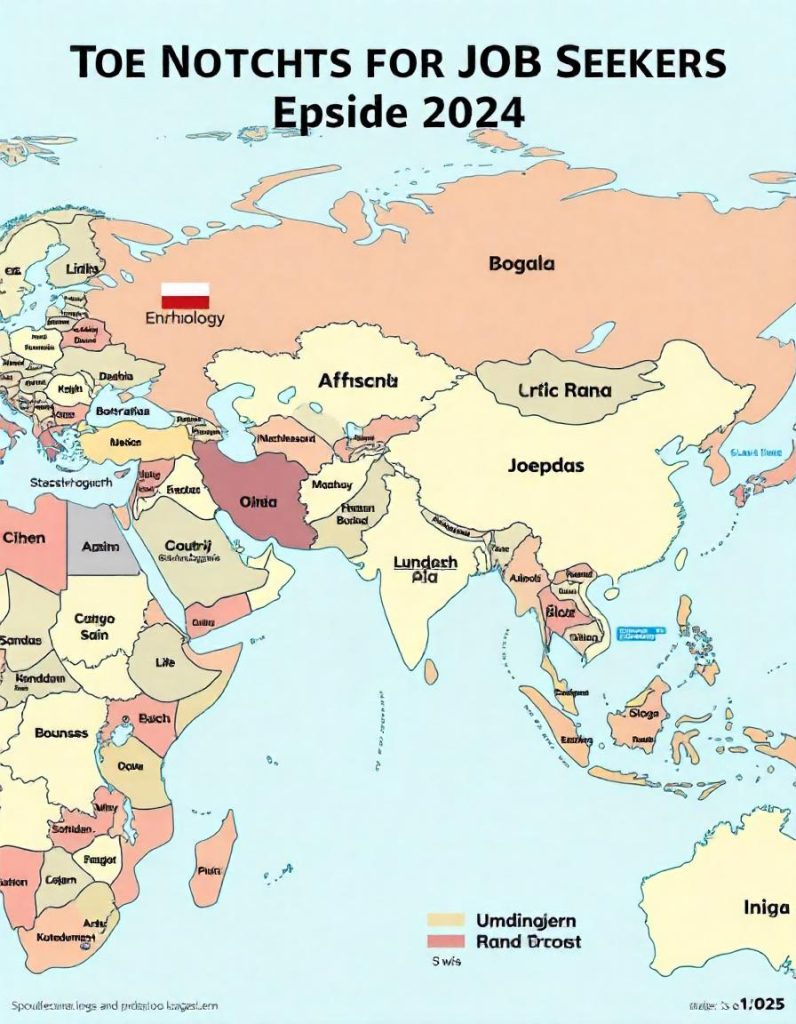How To Find Jobs In The UAE
The United Arab Emirates (UAE) is known for its vibrant job market, especially in cities like Dubai and Abu Dhabi, which are home to a wide range of industries, including finance, technology, construction, hospitality, and healthcare. If you’re looking to find a job in the UAE, there are several effective strategies and resources that can help you in your job search. Here’s a guide on how to find jobs in the UAE. 1. Use Local Job Portals There are several UAE-specific job portals that offer job listings across various sectors. These platforms cater specifically to the UAE job market and can help you find opportunities that are updated regularly. Bayt: Bayt is one of the leading job portals in the Middle East and North Africa region. It offers job listings in a wide range of sectors and allows users to create a profile, upload a CV, and apply for jobs directly on the website. Gulftalent: Gulftalent is another popular job site for professionals in the UAE. It covers a broad spectrum of job categories and is frequently used by employers seeking to hire skilled workers. Naukrigulf: Naukrigulf is a well-established job board for the Gulf region. It offers jobs in sectors such as engineering, healthcare, IT, and education, and allows users to apply directly to job postings. Monster Gulf: Monster Gulf is part of the global Monster network and is widely used in the UAE for job searches. It offers job listings, career resources, and a platform to upload your resume. 2. Leverage LinkedIn LinkedIn is an essential tool for job seekers in the UAE. Many companies post job openings directly on LinkedIn, and the platform also allows you to network with professionals in the UAE. Ensure that your profile is up-to-date, with a clear job title, skills, and a detailed work history. You can follow companies, join relevant groups, and engage with industry professionals to expand your network. Additionally, LinkedIn allows users to apply for jobs with just a few clicks, making it a great way to reach recruiters and hiring managers in the UAE. You can also use the platform to research companies, understand their culture, and learn more about the hiring process in the UAE. 3. Company Websites Many large companies in the UAE post job openings directly on their websites. It’s a good practice to regularly check the careers section of companies you are interested in working for. Some of the most popular companies in the UAE that frequently hire foreign workers include: Emirates Group: The Emirates airline and other group companies often have open positions in fields like aviation, customer service, IT, engineering, and hospitality. Abu Dhabi National Oil Company (ADNOC): ADNOC regularly hires professionals in the energy, engineering, and oil sectors. Al Tayer Group: Known for retail, automotive, and real estate services, the Al Tayer Group often has openings for various positions in Dubai. Dubai Airports: If you’re interested in working in the aviation or hospitality industry, Dubai Airports frequently posts job openings across different departments. 4. Recruitment Agencies Recruitment agencies in the UAE can also assist with your job search. These agencies typically specialize in matching qualified candidates with appropriate job opportunities. Some of the top recruitment agencies in the UAE include: Michael Page UAE: Specializing in various industries, including finance, marketing, IT, and HR, Michael Page connects candidates with top employers in the region. Robert Half: This global recruitment agency also operates in the UAE and focuses on financial and accounting roles, along with other professional sectors. Hays UAE: Hays is another well-known international recruitment agency with a strong presence in the UAE. They specialize in a wide range of fields including construction, engineering, IT, and healthcare. Adecco UAE: Adecco specializes in both temporary and permanent placements, offering opportunities in industries like hospitality, construction, and administration. 5. Networking Networking is one of the most effective ways to find a job in the UAE. Many job opportunities are filled through personal connections, so it’s essential to build a professional network in the region. Here’s how you can do that: Attend Job Fairs: Participate in career fairs and networking events held in cities like Dubai and Abu Dhabi. These events provide a great opportunity to meet employers, learn about job openings, and make connections in your industry. Industry Events and Conferences: Attend industry-specific conferences, seminars, and workshops in your field. These events often attract recruiters looking for talent and can be a valuable opportunity to network with industry leaders. Connect on LinkedIn: As mentioned, LinkedIn is an essential networking tool. Connect with professionals working in your industry in the UAE, and engage with content relevant to your career interests. Join Professional Associations: Becoming a member of professional organizations in your field (e.g., the UAE Chamber of Commerce, industry-specific associations) can also help you expand your professional network. 6. Check Government Job Portals The UAE government has job portals where public sector job opportunities are posted. These are often stable, well-compensated roles. Some government job portals include: UAE Government Job Portal: The UAE government website offers listings for roles within various ministries, government agencies, and public sector organizations. Dubai Careers: Dubai’s government-run job portal lists vacancies in government departments across the emirate. These jobs are ideal for expatriates looking for secure and long-term employment in the public sector. 7. Be Prepared for the Hiring Process Once you’ve found job openings in the UAE, it’s important to be prepared for the hiring process: Resume/CV: Ensure your CV is tailored to the UAE job market. Highlight relevant experience and education, and make sure your contact details are up to date. Make sure to include your skills, achievements, and a professional summary. Cover Letter: A personalized cover letter that addresses the employer’s needs and explains why you’re the right fit for the job can help you stand out from other candidates. Work Visa: If you are not a UAE citizen, you’ll need a work visa to work legally in the country. Most companies will assist with the
How To Find Jobs In The UAE Read More »










